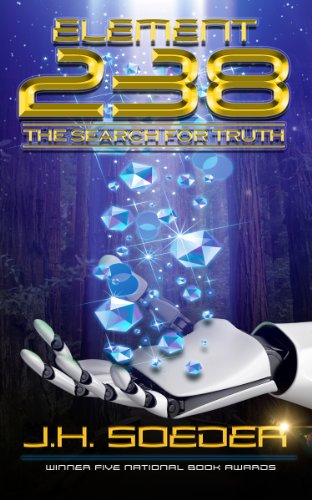
LitPick Review
In a dystopia where the basic cultural structure of families and the world have been all but deleted, scientist Thomas Harding struggles to undermine Mensam, the twisted government that started it all. Over three hundred years in the past, Mensam released a deadly virus that wiped out the vast majority of humanity, then proceeded to create its own society, one where scientists are separated from each other and the world in high-security compounds and the only time families get together is to celebrate birthdays. Harding sees the many faults of the group and begins to work undercover with a scientist who flies under the radar of Mensam to develop their own inventions regarding the movement of matter through time and space. But at the same time, Harding’s wife and two children are drifting apart; his wife is lonely and detached, his daughter lives in a virtual world, and his son, Matthew, puts his intellect to waste playing practical jokes on people, especially the head security guard. Thomas Harding wants to save his disintegrating family and complete his invention, and the only way he sees fit to do so is to venture into the outside world, a place filled with far more danger than he could ever imagine.
Opinion:
J.H. Soder’s Element 238: The Search for Truth was written atop a strong dystopian foundation and born from a solid blueprint. However, the construction itself could use a bit of touching up; the first half of the short novel felt heavy with the repetition of an overplayed practical joke and was slow in picking up. The interest level began to gain speed with the second half, in which Thomas Harding took the spotlight and began to heat the plot up with a futuristic Bunsen burner. With his character’s development, readers began to really understand the impact of Mensam and its actions on the world as we know it, plus the action became more relevant to the overall plot. Also, there were a few structural mishaps as there was an abundance of exclamation points and a paucity of contractions, especially in dialogue. That being said, Soder’s Element 238 was an interesting read that would be a potential read for science fiction fans in middle school or above.

